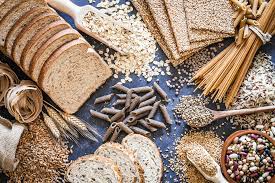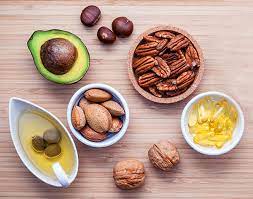
Top Heart Healthy Foods: For Boosting Cardiovascular Wellness
Ensuring a robust cardiovascular system is paramount, and incorporating heart-healthy foods into your daily regimen can be a game-changer. By prioritizing nutrient-rich choices, you pave the way for optimal heart health and overall well-being.

Maintaining a healthy heart is crucial for overall well-being, which is one of the most effective ways to promote cardiovascular well-being and reduce the risk of heart disease. The foods you choose to fuel your body can have a profound impact on your heart health. By incorporating certain foods into our diet, we can provide our bodies with essential nutrients that support heart function and reduce the risk of heart-related conditions. In this post, we’ll explore a variety of delicious and nutrient-packed foods that are excellent choices for supporting a strong and healthy heart.
Fruits and Vegetables: Nature’s Heart-Protective Powerhouses
Fruits and vegetables are packed with vitamins, minerals, antioxidants, and dietary fiber, making them an excellent choice for maintaining a healthy heart. The high fiber content in fruits and vegetables helps lower cholesterol levels and regulate blood pressure. Additionally, the antioxidants found in these foods protect against oxidative stress and inflammation, both of which are risk factors for heart disease.
Leafy greens such as spinach, kale, and Swiss chard are particularly beneficial due to their high levels of vitamins A, C, and K, as well as potassium and magnesium. They contain compounds that help reduce the risk of heart disease by improving cholesterol levels and supporting healthy blood pressure.

Tomatoes are rich in lycopene, an antioxidant associated with a reduced risk of heart disease. Cooking tomatoes enhances the availability of lycopene, so consider incorporating them into sauces and dishes.
Berries, such as blueberries and strawberries, are rich in antioxidants called anthocyanins, which have been shown to reduce the risk of heart disease by reducing inflammation and supporting healthy blood vessel function. Citrus fruits like oranges and grapefruits are excellent sources of vitamin C and soluble fiber, which can help lower cholesterol levels. Adding a variety of colorful fruits and vegetables to your diet can provide a wide range of heart-protective nutrients.
Whole Grains: The Foundation of a Heart-Healthy Diet
Whole grains are an essential part of a heart-healthy diet. Whole grains like oats, quinoa, and whole wheat are high in fiber, which helps lower cholesterol levels and maintain steady blood sugar levels. Choosing whole grains over refined grains can have a substantial impact on heart health. Unlike refined grains, such as white bread and white rice, whole grains retain all parts of the grain, including the bran, germ, and endosperm. This means they are rich in fiber, vitamins, minerals, and antioxidants. The fiber in whole grains helps reduce cholesterol levels and lower the risk of heart disease.

Oats, for example, are an excellent source of soluble fiber, which can help lower LDL (bad) cholesterol levels. Brown rice, quinoa, and whole wheat products are also great options for incorporating whole grains into your diet. These foods provide a steady release of energy, promote satiety, and help regulate blood sugar levels. By replacing refined grains with whole grains, you can improve your heart health and reduce the risk of cardiovascular diseases.
Lean Proteins: Building Blocks for a Healthy Heart
Protein is an essential nutrient for maintaining heart health. However, not all protein sources are created equal. Lean proteins, such as skinless poultry, fish, legumes, and low-fat dairy products, are excellent choices for a heart-healthy diet. These foods are low in saturated fat and cholesterol, which can contribute to heart disease when consumed in excess.

Fatty Fish: Omega-3 Powerhouses
Fatty fish, such as salmon, mackerel, and sardines, are rich in omega-3 fatty acids, which have been shown to reduce inflammation and lower the risk of heart disease. Omega-3s have numerous heart benefits, including reducing triglycerides, improving heart rhythm, and lowering blood pressure.
Legumes, including beans, lentils, and chickpeas, are not only a great source of protein but also contain soluble fiber that helps lower cholesterol levels. Incorporating lean proteins into your meals can provide the necessary nutrients for a healthy heart while reducing the intake of unhealthy fats, thus maintaining a healthy weight.
Healthy Fats: Nourishing Your Heart
Contrary to popular belief, not all fats are bad for your heart. In fact, certain types of fats are essential for maintaining optimal heart health. Monounsaturated and polyunsaturated fats, found in foods such as avocados, nuts, seeds, and olive oil, can help lower LDL cholesterol levels and reduce the risk of heart disease.
Avocados are rich in monounsaturated fats, Avocado is a versatile fruit that’s rich in monounsaturated fats, potassium, and fiber. Its nutrient profile supports healthy blood pressure levels which can help improve blood cholesterol levels and decrease the risk of heart disease and can be a great addition to various dishes.

Nuts, such as almonds, walnuts, and pistachios, contain a combination of healthy fats, fiber, and antioxidants that promote heart health. Almonds, walnuts, flaxseeds, and chia seeds are rich in heart-healthy fats, fiber, and antioxidants. Incorporating a handful of these nuts and seeds into your daily routine can have positive effects on cholesterol levels and overall heart health.
Olive oil, a staple in the Mediterranean diet, is an excellent source of monounsaturated fats and antioxidants. Olive oil, especially extra virgin olive oil, is a cornerstone of the Mediterranean diet, known for its heart-protective benefits. It contains monounsaturated fats and antioxidants that contribute to improved cardiovascular health.
Dark Chocolate: A Heartwarming Treat
Dark chocolate with a high cocoa content (70% or more) contains flavonoids that have antioxidant and anti-inflammatory properties. Enjoying a small portion of dark chocolate in moderation can be a delightful way to support heart health.

Maintaining a healthy heart is crucial for a long and fulfilling life. A heart-healthy diet doesn’t have to be bland or restrictive. By incorporating fruits and vegetables, whole grains, lean proteins, and healthy fats into your diet, you can provide your body with the necessary nutrients to support heart health. Remember to choose a variety of foods within each category to ensure you receive a wide range of heart-protective nutrients. Additionally, it is essential to maintain a balanced diet, exercise regularly, and avoid excessive consumption of unhealthy fats and processed foods. By making these dietary changes, you can take proactive steps towards promoting a healthy heart and reducing the risk of cardiovascular diseases. Make these heart-healthy foods a regular part of your diet and savor the benefits of better heart health for years to come.
Disclaimer: The information provided in this content is for general informational purposes only. It is not intended as medical or healthcare advice, diagnosis, or treatment. Always seek the advice of a qualified healthcare professional with any questions you may have regarding a medical condition or healthcare decisions.
















